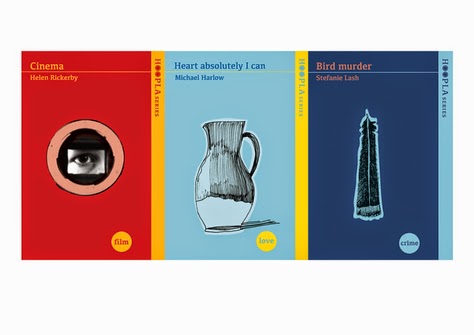for Leicester Kyle
1
a plank bed in a gully
and a woman there with
a buckled mouth my hand
plunged deep in her pigfern
turpentine and tea-tree
the sour-smoke smell
of damp coal in the scuttle
and flat beer on the bench
once I stood so tall on
a stolen Triumph
my hair streamed behind
like a thousand freedoms
now I stand two miles
above flatlanders
screaming so loudly
no one can hear me
earthbound beneath
a high ocean of air
I am a poisoned stream
full of slippery words
sliding underneath a broken
bridge’s collapsed members
her body is heavy and overgrown
her laughter is desperate
already my sons have gone
there is nothing for me here
2
I am tired of the chipped Formica
and its clouds of blood
I am tired of stainless steel
and its bleary reflections
I am sick of the Feltex floors
which stick to my feet
the broken glass and crushed cans
the rain the water the strangled drains
my mind is a mixed miasma of
smoke gathered on the ceiling
cut through by angle iron and
the jangling chords of a rusty guitar
and I am tired of screechy voices
of brotherhood and sisterhood
I just want to curl like a frond
of bracken into the silence of love
Posted with permission from James Norcliffe
*
Editor this week: Harvey Molloy
I’ve chosen the first two sections of James Norcliffe’s poem for this week’s Tuesday
Poem because I want to share my appreciation of longer, more challenging poems.
‘Villon in Millerton’ is a long poem composed of six sections in which the fifteenth
century troubadour Villon, exiled from France for his crimes, hides out the West Coast
town of Millerton. Villon—who has been translated into English by Rossetti and
yesterday's women) which ends with the line "Mais ou sont les neiges d'antan?" ("Where
are the snows of yesteryear?") and for the imaginary wills (bequeathing his soul, his stolen
wine, his love, etc) of his Testaments. Sure, I had heard of Villon before reading James’
poem, but it was this poem that led me to read more of Villon and to learn more about
his life, as well as to the life and work of the poet Leicester Kyle. Long poems are still a
great form of social memory.
The opening stanza makes me reel as I am caught in Villon’s giddy, violent swagger. The
brutal objectification of ‘the woman’ (who may or may not be real or who may or may
not be ‘the bush’) coupled with the perfect adjective of ‘buckled’ flows in the alliterative
melody and ps and bs and the subtle assonance of ‘u’s . The unadorned, exhilarating
wild energy of this persona hooks me into the poem as we end the first section with a
note of tenderness: ‘her laughter is desperate’. A bad boy; yes, but Villon is surely no
unfeeling monster.
Norcliffe's Villon is the Kiwi man alone: "tired of screechy voices/of brotherhood and
sisterhood"; he’s "tired of chipped Formica" and "sick of the Feltex floors." He's in exile
from domestic life and on the run from the cops. Employing the imaginary wills of
Villon's Testament, later in the poem he bequeaths a “thundering yellow fart” to the
helicopters, “astigmatism arthritis” to the cops and the “crock of shit that is the past” to
the future. Like Vincent O'Sullivan, Norcliffe has a great ear for New Zealand English and
like O'Sullivan Norcliffe's poetry combines intellectual concerns with visceral impact. It's
a staggeringly good poem: bitter, humorous, middle-aged and angry. The man alone
myth ends with a wrecked kitchen, a failed encounter with ‘the woman’ (papatuanuku?)
and memories of road trips past. Yet the poem raises a question of the Kiwi bloke ‘man
alone’ mythos: what does the loss of the bush man mean for how we view and treat the
wilderness? It’s all very well to point out the sexist pitfalls and traps of the notion of the
good keen man—fair enough, too—but what’s lost in the rush to buy formica and stainless
steel? Or is the persona’s resistance to domestication merely a bubbling, immature hostility? a residual masculine violence? There’s a lot to consider here.
*

New
Zealand writer James Norcliffe has published eight collections of poetry, most
recently Along Blueskin Road, Villon in Millerton, and Shadow Play, and several
award-winning fantasy novels for young people. He publishes poetry widely
internationally and regularly reads at festivals and occasions throughout NZ
and overseas most recently at the XX International Poetry Festival in Medellin,
Colombia in 2010 and the Trois-Rivieres International Poetry Festival in Quebec
in 2012. Recent work has appeared in Gargoyle, The Cincinnati Review, Fourteen
Hills and Spillway. With Siobhan Harvey and Harry Ricketts he has edited the
new Essential New Zealand Poems anthology to be released by Godwit /Random
House in August.
Harvey Molloy is a Wellington-based
poet.
*
Be sure to check out the other poems shared by Tuesday Poem members. Scroll down the left-hand sidebar and click on the links there to see what poems others are reading and reviewing this week.







